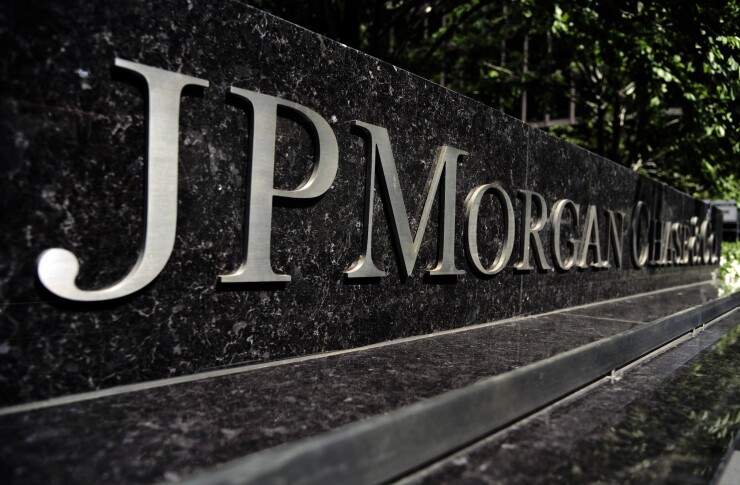Want unlimited access to top ideas and insights?

Over the past twelve months, the largest banks have been in an AI arms race. An industry ranking reveals how they are fighting for the prize.
JPMorgan Chase, Capital One and Royal Bank of Canada have been named the top AI leaders in banking in
Evident's team of data scientists annually assesses 50 of the largest banks in North America, Europe and Asia in the categories of AI talent, innovation, leadership and transparency, using mostly publicly available information.
"This year — I've never seen anything like it. It's a frenzy and it's super competitive," said Alexandra Mousavizadeh, CEO of Evident, in an interview. "So even while you might see some of the same banks at the top, what we've seen is that the leading banks are moving at a pace that is double the rest of the banks."
JPMorgan Chase and Capital One have been getting use cases into production quickly, she said.
The top banks are starting to talk about return on investment. At an investor day in May, Daniel Pinto, JPMorgan Chase's president and chief operating officer, said the bank expects to reap $1 billion to $1.5 billion through its use of AI in customer personalization, trading, operational efficiencies, fraud management and credit decisioning. In September, Pinto revised that projection to $2 billion, and said much of this will come from fraud prevention.
"I think we're going to see many more banks talk about ROI, and it's going to push the other banks to talk about ROI," Mousavizadeh said.
JPMorgan Chase is rolling out AI assistants to 140,000 employees to help them draft emails and reports. Last year,
The bank has a decisive lead in innovation, according to
Capital One has been growing its pool of AI talent quickly, according to the report. It also has an advantage in that it shifted all its technology to the cloud (specifically, Amazon Web Services) from 2013 to 2020.
"Over the past year, we've seen numerous examples of the bank's ability to move quickly, without the handicap of a legacy tech stack," the report stated. "In May 2023, Milind Naphade joined Capital One from Nvidia to head the bank's AI Foundations organization. As a former Program Director and Chief Scientist at IBM Research, Dr. Naphade has already presided over some meaningful wins."
HSBC and Morgan Stanley have been doubling down on AI initiatives to catch up with the leading U.S. banks, Mousavizadeh said. HSBC hired a new group chief information officer from Citi, Stuart Riley.
As the AI leaders continue to push forward on AI deployments, they are going to gain a competitive advantage, Mousavizadeh said.
"I think it's going to get much harder to catch up once the generative AI use cases are really saturating the leading banks because they're going to start to see that return — efficiency gains, productivity gains, revenue uplift and then they're gonna grow their market share," she said. "They're going to see this hitting the bottom line. The banks that are not doing it are gonna find it too late, maybe too difficult to catch up and therefore too expensive."
Evident's AI Index gets mixed reviews from outside observers, largely because it's based on public information, rather than what's going on behind the curtain.
"I think the Evident scale is interesting but not sure how truly useful it is," said Gilles Ubaghs, strategic advisor, commercial banking and payments, at Datos Insights. "Most banks are fairly quiet in terms of what they're working on as much of the work on AI is on the back end to gain efficiency, and isn't always the sort of development to garner a lot of media attention. Likewise even where banks are more vocal, I think there's an argument to be made that things like use cases, deployment, the customer experience and actual results are more important than the number of patents a bank may have."
The Index heavily favors large banks that have their own in-house talent. Small banks that rely on technology partners could be more nimble, in Ubaghs's view.
"While it helps to have huge development capabilities, the way the AI market is shaking out, it's less about scale in a tier one bank, and more broadly about tech strategies, good partnerships and willingness to experiment," he said.






